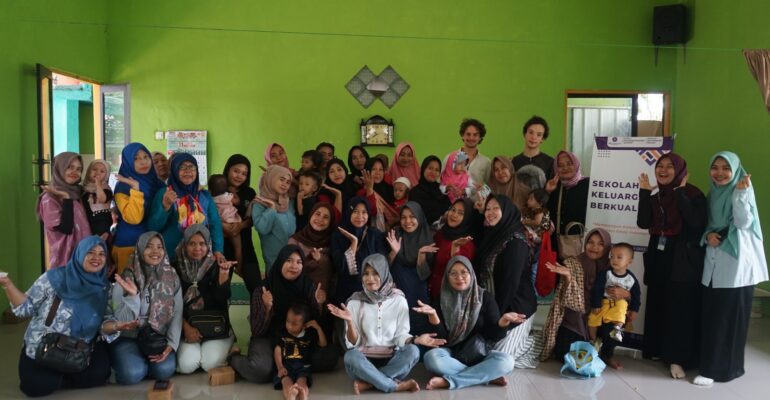IPB University Introduces the Right Complementary Food to Help Children’s Growth

IPB University plays a role in educating the public about the importance of providing additional nutrients that children need as they progress from a liquid-based diet (breast milk or formula) to solid foods that support growth and health.
Through outreach, collaborations and educational campaigns, IPB University seeks to change consumption behaviours so that people choose healthy and quality foods and ensure the availability of good food options for children.
The Directorate of Agromaritime Community Development (DPMA) together with the Department of Family and Consumer Sciences (IKK) invited mothers to provide appropriate complementary foods (MPASI) through the Quality Family School (SKB) programme in Loji Village, on 24/11.
The Chief of Loji Village cadres appreciated this programme. “The Sekolah Keluarga Berkualitas activity is very useful and is expected to be developed further to provide education, knowledge or social benefits for mothers,” she said.
She continued, it is the mothers’ hope that they can continue to get support and guidance from IPB University for the development of existing programmes.
“We are very happy with the Quality Family School activities, even until the last meeting the mothers here are still enthusiastic, but unfortunately this meeting is the last,” said the Chief of Loji Village cadres.
IPB University is also involved in introducing new ways of preparing complementary food that children prefer with easily available and protein-rich ingredients. This includes recipe development, or processing techniques, such as how to cook, preserve, or process food ingredients more efficiently and healthily.
By involving trained posyandu cadres, IPB University can disseminate knowledge and best practices related to complementary food processing to participants of Sekolah Keluarga Berkualitas.
This will not only help improve participants’ understanding of complementary food, but also strengthen the role of posyandu cadres as agents of change in promoting local food ingredients and healthy nutrition for children in the community. (Lp) (IAAS/RUM)



